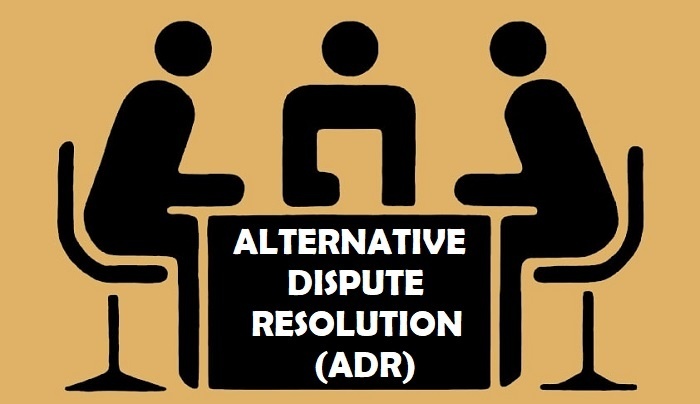
If you are looking to resolve a dispute without having to resort to litigation, Alternative Dispute Resolution (ADR) might be the best route to go down.
At Oracle Law Giffnock, one of the many dispute cases that our specialist team of lawyers have extensive expertise in is ADR. ADR refers to the methods that can be used to resolve a dispute between two parties without having to go to court such as arbitration or mediation.
If you have a consumer problem (a dispute with a business, trader, or seller), or a more personal dispute with a family member, ex-partner, or neighbour, ADR can be a good way to help solve your problems without resorting to expensive and time consuming formal legal proceedings.
Why use Alternative Dispute Resolution?
There are many reasons why ADR is a much better option than going to court in the vast majority of dispute cases.
The two are also not mutually exclusive and ADR can be useful when used alongside litigation to help narrow down the problem.
The main benefits to using ADR to solve disputes include:
- ADR is much cheaper and faster than going to court
- Avoiding court can save a lot of unnecessary stress and energy for all parties involved
- ADR is fully confidential whereas any court findings will be made public.
- It may be possible to save a relationship or business agreement if a dispute is resolved through discussion and compromise rather than an extended legal battle.
You will also avoid having to attend an official hearing when using ADR methods and any decisions made through arbitration will be made based on the documents and paper evidence provided by both parties.
Some ADR schemes are still legally binding despite the flexibility of the procedure meaning that if you agree to accept the findings of an arbitrator or similar, you won’t be able to change your mind in the future and take the case to court instead.
What are the different types of ADR?
The main forms of ADR that may be able to help you solve your problems are:
- Mediation
- Conciliation
- Arbitration
If you are dealing with a business dispute, there is a possibility that there will be a contractual obligation to partake in one or more of these proceedings should a conflict occur.
What to consider before selecting an ADR method
If you are considering attempting to resolve a dispute through ADR there are a few questions that you should ask yourself when deciding which method to use.
The following questions are crucial to determining the best way forward with a dispute case:
What are you looking to get out of ADR proceedings?
– How much time do you have? – Almost all ADR processes will be completed faster than going through court, but they do vary widely in duration.
– Are you willing to meet with the other side, or do you want all communication to be conducted through solicitors?
– How much do you have to spend on the process?
– Do you want to keep the option of court on the table? – Certain ADR methods such as arbitration cannot be conducted alongside a court case and once a decision is made you cannot change your mind in the future
What does each ADR method involve?
Before you can decide which ADR method to pursue, or indeed if you want to enter into ADR at all, it is important to have an understanding of what each method entails.
Mediation
Mediation involves using an independent third party, known as a mediator, to bring both parties together and discuss the best way to resolve a dispute.
Both sides will have their chance to be heard and will work to find some form of middle ground to agree upon.
Mediators are there to help both sides agree to a solution, NOT to make the decision themselves and it is crucial that they are completely impartial.
Once a mediated agreement is made it is legally binding, but the process can take place alongside litigation in case that discussions break down.
Conciliation
Conciliation is a much more informal version of arbitration and is usually a free to use option offered before other ADR options.
A conciliator will look at the needs and wants of all parties and attempt to come to an agreed solution that will suit both sides.
When you enter into a contract with a trader, they may well have their own conciliation service that you are required to use prior to independent arbitration.
Arbitration
Arbitration involves the appointing of an independent arbitrator to make a legally binding decision about a dispute.
In most arbitrations, there will be no court case involved but the process will be similar with both sides presenting evidence which will then be assessed, and a final decision made.
Once arbitration proceedings have begun you won’t be able to go to court later on if you do not agree with the decision to take care to take legal advice before entering a contract with an arbitration clause in place.
